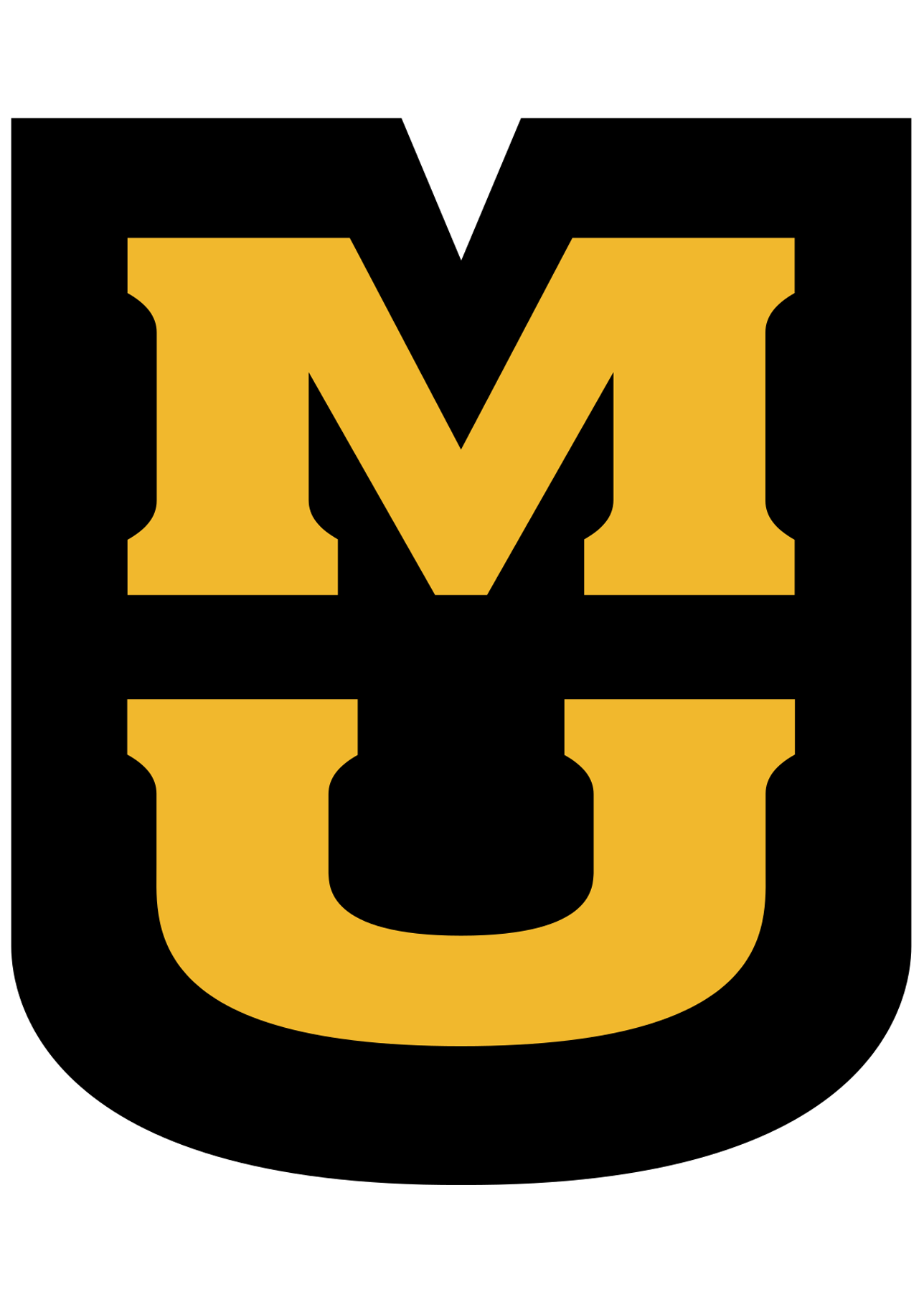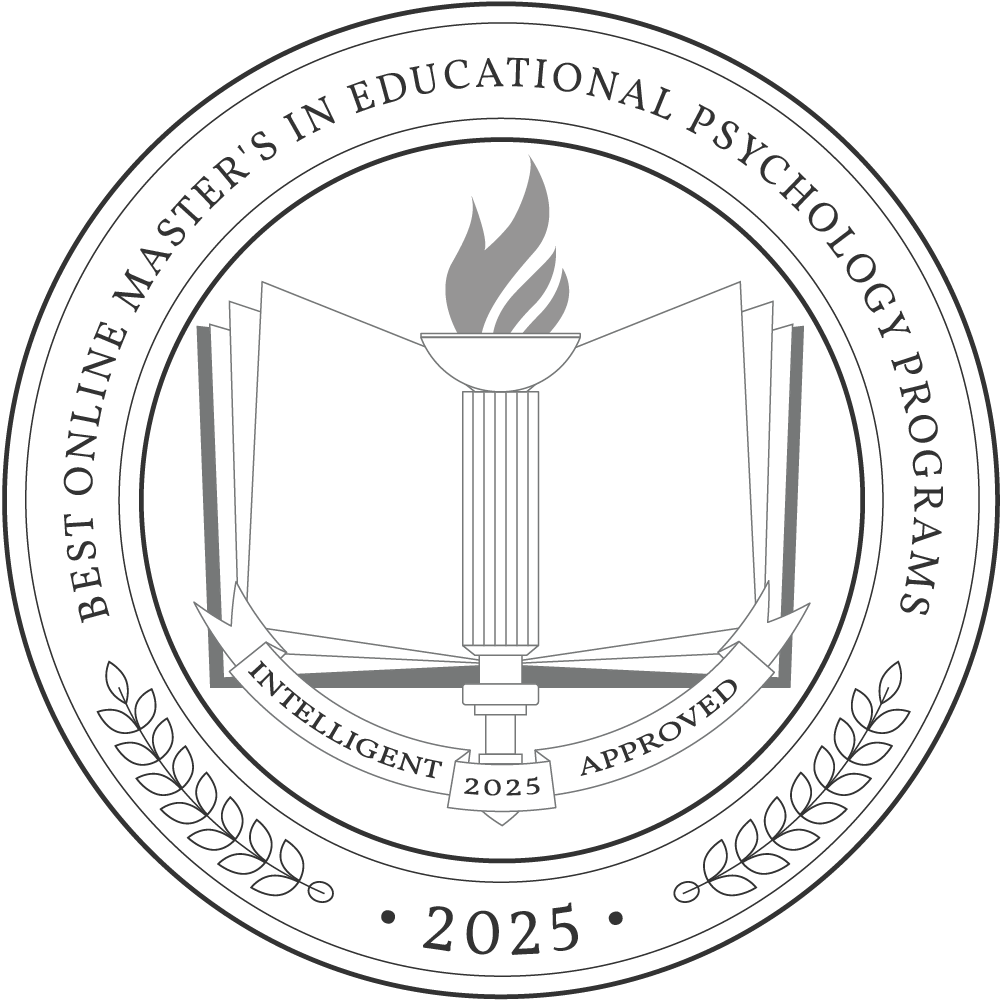Students entering an online master’s in educational psychology program can pursue multiple career paths, such as a school or career counselor, earning a median annual salary of $60,140 annually, or a social worker, earning a median salary of $55,350 annually.
Both public and private institutions offer online master’s degrees in educational psychology. The average tuition for graduate degrees is $12,596 at public schools and $28,017 at private schools.
Why Trust Us
The Intelligent.com Higher Education Team is dedicated to providing students with independent, equitable school and program rankings and well-researched resources. Our expert-driven articles cover topics related to online colleges and programs, paying for school, and career outlooks. We use data from the U.S. Department of Education’s College Scorecard, the National Center for Education Statistics, and other reputable educational and professional organizations. Our academic advisory team reviews content and verifies accuracy throughout the year for the most current information. Partnerships do not influence rankings or editorial decisions.
- Analyzed over 2,000 national, accredited, and nonprofit colleges and universities
- 800+ rankings pages are reviewed and updated yearly
- Content is informed by reputable sources, surveys, and interviews with academic advisors and other experts
- Over 100 data points are reviewed for accuracy and quality throughout the year, including sources
How we rank schools
Our list features the best online Educational Psychology degree programs at top colleges nationwide. Each school featured is a nonprofit, accredited institution — either public or private — with a high standard of academic quality for post-secondary institutions.
We evaluated each school’s program on tuition costs, admission, retention and graduation rates, faculty, reputation, and the student resources provided for online students. We collected data from trusted sources like the National Center for Education Statistics, individual school and program websites, school admissions counselors, and other data sources. Then, we calculated the Intelligent Score on a scale of 0 to 100 based on the following criterion:
Academic Quality:
- Admission rate versus enrollment rate
- Retention rate of students who return after year one
- Accreditation status (regional and programmatic)
- Nonprofit status, both private and public institutions
Graduation Rate
- Overall graduation rate
- Total number of currently enrolled students, including diversity metrics
- Student-to-faculty ratio
Cost and ROI
- In-state and out-of-state per-credit tuition rates and fees
- Required credits to graduate
- Earning potential after graduation
- Availability of federal student loans, scholarships, and other financial aid options
Student Resources
- Available student services for online-only and hybrid programs
- On-campus amenities like tutoring centers and the number of libraries
Read more about our ranking methodology.
Best 15 Accredited Online Master's in Educational Psychology Programs
FiltersInstitution Type
Status
- Intelligent Score
- Alphabetically By University Name
- Acceptance Rate
- Enrollment
- In-state Graduate Tuition
- Out-of-state Graduate Tuition
- In-state Undergraduate Tuition
- Out-of-state Undergraduate Tuition

University of Georgia
Intelligent Score: 99.60In-state: $9,790
Out-of-state: $28,830
In-state: $8,878
Out-of-state: $8,878
SAT: 1250-1460
ACT: 29-33
$629
Online
Southern Association of Colleges and Schools Commission on Colleges
34

Texas A&M University College of Education and Human Development
Intelligent Score: 98.72In-state: $8,395
Out-of-state: $36,849
In-state: $6,775
Out-of-state: $6,775
SAT: 1160-1380
ACT: 26-32
Resident: $1,070
Non-Resident: $1,612
Online, On-Campus
Southern Association of Colleges and Schools Commission on Colleges
36

University of Missouri
Intelligent Score: 97.62In-state: $9,330
Out-of-state: $27,612
In-state: $9,478
Out-of-state: $9,478
SAT: 1110-1320
ACT: 23-29
$661
Online
Higher Learning Commission
30

University of Northern Colorado, Extended Campus
Intelligent Score: 96.08In-state: $7,596
Out-of-state: $19,854
In-state: $10,867
Out-of-state: $10,867
SAT: 980-1200
ACT: 19-26
$612
Online, On-Campus
Higher Learning Commission
30

University of Southern Maine
Intelligent Score: 96.06In-state: $8,064
Out-of-state: $21,532
In-state: $7,776
Out-of-state: $7,776
SAT: 958-1160
ACT: 20-25
$460
Online
New England Commission of Higher Education
36

Florida State University
Intelligent Score: 95.42In-state: $4,640
Out-of-state: $19,084
In-state: $9,684
Out-of-state: $9,684
SAT: 1220-1350
ACT: 27-31
In-State: $444
Out-of-State: $1,075
Online
Southern Association of Colleges and Schools Commission on Colleges
33

The College of Saint Rose
Intelligent Score: 94.97In-state: $33,152
Out-of-state: $33,152
In-state: $14,382
Out-of-state: $14,382
SAT: N/A
ACT: N/A
$863
Online
Council for Accreditation of Counseling and Related Educational Programs
30

Eastern Michigan University
Intelligent Score: 93.14In-state: $13,500
Out-of-state: $13,500
In-state: $14,868
Out-of-state: $14,868
SAT: 980-1200
ACT: 19-26
$512
Online
Council for Accreditation of Counseling and Related Educational Programs
30

Touro University Worldwide
Intelligent Score: 92.54In-state: $14,400
Out-of-state: $14,400
In-state: $9,000
Out-of-state: $9,000
SAT: N/A
ACT: N/A
$500
Online
Western Association of Schools and Colleges Senior College and University Commission
36

Ball State University
Intelligent Score: 92.34In-state: $9,482
Out-of-state: $26,470
In-state: $9,328
Out-of-state: $9,328
SAT: N/A
ACT: N/A
In-State: $451
Out-of-State: $676
Online
Council for Accreditation of Counseling and Related Educational Programs
30

University of Memphis
Intelligent Score: 92.29In-state: $8,208
Out-of-state: $12,048
In-state: $9,216
Out-of-state: $9,216
SAT: 990-1200
ACT: 19-26
Resident:$532
Non-Resident: $755
Online
Southern Association of Colleges and Schools Commission on Colleges
30

University of Nevada, Las Vegas
Intelligent Score: 91.82In-state: $25,749
Out-of-state: $42,291
In-state: $36,629
Out-of-state: $36,629
SAT: 1000-1220
ACT: 18-24
$321
Online
Council for Accreditation of Counseling and Related Educational Programs
33

Pennsylvania Western University
Intelligent Score: 90.92In-state: $28,700
Out-of-state: $33,322
In-state: $31,723
Out-of-state: $31,723
SAT: 950 - 1070
ACT: 20 - 26
Resident: $516
Non-Resident: $526
Online
Council for the Accreditation of Educator Preparation
30

The University of Tennessee, Knoxville
Intelligent Score: 89.02In-state: $11,332
Out-of-state: $28,522
In-state: $11,468
Out-of-state: $11,468
SAT: 1140-1303
ACT: 25-31
$700
Online
Council for Accreditation of Counseling and Related Educational Programs
36

Wichita State University
Intelligent Score: 85.22In-state: $6,843
Out-of-state: $16,208
In-state: $5,544
Out-of-state: $5,544
SAT: 1020-1250
ACT: 20-27
$326
Online, On-Campus
Council for Accreditation of Counseling and Related Educational Programs
32
How to Choose an Online Master’s in Educational Psychology Program
Choose your area of study
Choosing an area of study means choosing between a master of science (MS) and a master of arts (MA) degree. MA degrees focus more on theories and applying evidence-based approaches in a clinical setting. In contrast, MS degrees focus on research methodology, data analysis, and designing experiments. Also, some programs allow you to choose a concentration and focus your studies on a specific specialty area, such as school psychology or adult education.
Once students establish their career goals, they can search for a master’s program to help them get where they want to go.
Research schools and programs
Students must research multiple online master’s programs and schools to compare what the different options offer. This research can help students determine the best online master’s in educational psychology program for their needs and goals.
You should only consider institutions that have been approved by a DOE-recognized regional accrediting organization, such as the New England Commission of Higher Education or Northwest Commission on Colleges and Universities. These organizations evaluate schools to ensure they provide students with a high-quality education. Those who attend a school that isn’t regionally accredited may be unable to access financial aid or transfer credits to another institution if needed.
If you’re interested in a counseling career, you should look for a program that has also been approved by the Council for Accreditation of Counseling and Related Educational Programs (CACREP). This programmatic accrediting organization has particularly high standards for counseling education.
Once you have a list of accredited programs, other factors to investigate include the following:
- Faculty expertise in the industry
- Faculty accessibility
- Base tuition costs and extra fees
- Student learning experiences
- Student support services
- Core curriculum and electives
- Graduation requirements
To learn more about any schools that you’re interested in, you can visit the school’s website, contact an admissions counselor, follow the school on social media, or attend an in-person or virtual open house.
Prepare for Tests and Applications
Application requirements vary by school and program. Some of the best master’s in educational psychology programs require passing the Graduate Record Exam (GRE). Every school has application deadlines, so it is vital to complete the GRE in time to submit it with any other materials that are needed, which often include:
- Application
- Application fees
- Transcripts
- Letters of recommendation
- Personal statement
- Resume
The testing and application process can sometimes feel overwhelming unless you stay organized. Develop a digital file system, make copies of all documents, and create a spreadsheet for tracking and meeting deadlines.
Before submitting an application, always contact an admissions counselor to ensure you have the most accurate information regarding requirements and deadlines.
Select your program
Before selecting their school and program, students should verify everything, including total program costs, online classes, acceptance of transfer credits, accreditation, and graduation rates and placements.
Students entering an online master’s program may not think the university’s location is a factor. However, some schools may charge out-of-state tuition and fees for students living in different states.
The key to making a good decision is gathering accurate information. The more you know about a program, the easier it will be to select one.
Finally, review your needs and goals again. Do you plan to attend school full-time or part-time? Do you want your program to be as online as possible, or are you fine with a hybrid program that has a fair amount of in-person requirements? Some programs offer asynchronous courses, which can be completed at your own pace, while others only offer synchronous courses, which involve remotely attending lectures and completing assignments at the same time as other students — which of these two online learning formats do you prefer? Your school should accommodate your scheduling needs and learning preferences.
Determine how you will pay for your degree
Students who plan to continue working full-time while attending an online master’s in educational psychology program in the evenings and weekends may want to check with their employer about tuition assistance benefits. Tuition reimbursement is an exchange between a student and an employer. Typically, the employer agrees to pay part of your master’s degree program in exchange for the student continuing to work for the company after graduation.
Students also benefit from contacting the financial aid office of a university. A financial aid officer can assist with the Free Application for Federal Student Aid (FAFSA) application process and share available scholarships, grants, fellowships, work-study opportunities, and assistantships for which students can apply.
What Can You Expect from an Online Master’s in Educational Psychology Program?
Online programs for a master’s degree in educational psychology take about two years to complete unless a student attends part-time. In some cases, you may be able to earn a degree in this field in just one year.
Most programs require at least 30 credit hours of core and elective curriculum, a practicum in an educational or counseling setting, research projects, and final exams.
Instruction focuses on human development and learning, research foundations and applications, assessment and diagnosis, counseling theories and techniques, mental health disorders, and neuropsychology.
A graduate working in the school system will need to pass criminal background checks as well as professional skills assessments (e.g., the Praxis Core tests) to become qualified for teaching roles.
Graduates working as mental health counselors or social workers may need to pass their state’s licensing exams before applying for state licensure.
Potential courses you’ll take in an online master’s in educational psychology degree program
- Behavior Assessment. Students will learn to evaluate a student or client’s behaviors to determine a diagnosis, treatment plan, or learning improvement plan. They learn to identify why people behave the way they do and connect them with appropriate resources.
- Learning and Development. Students learn the developmental stages from childhood to adulthood. They also learn about cognitive, social, behavioral, and emotional changes throughout a lifetime, how these changes affect learning abilities, and how culture, economics, lifestyle, and environment influence learning.
- Research and Data Analysis. Students learn the various ways in which statistics apply to education and psychology. The course covers making decisions based on statistical evidence and how to use software to analyze data.
- Educational Technology. Students will learn the history and evolution of technology and how to integrate it into educational and counseling settings.
- DSM5. Students will learn about the Diagnostic and Statistical Manual for Mental Disorders, fifth edition (DSM5), created by the American Psychological Association to assist professionals in diagnosing mental health disorders.
What Can You Do With an Online Master’s in Educational Psychology?
Career outlook
Educational psychology is a specialized field that focuses on understanding how students learn and develop. It plays a crucial role in shaping educational practices, curriculum design, and support systems for students. Earning an online master’s degree in educational psychology equips individuals with the knowledge and skills to positively impact educational environments and student outcomes.
The career outlook for individuals with a master’s degree in educational psychology is promising, driven by the increasing emphasis on improving educational experiences and student success. Indeed, a master’s in educational psychology offers diverse career paths in education, research, social work, and other fields.
Here are some common career options:
- School or career counselor — School counselors help students develop academic and social skills, while career counselors assist students with choosing an occupation and taking the steps needed to reach their career goals.
- Median annual salary: $60,140
- Projected employment growth (through 2032): 5%
- New job openings projected: 26,600 annually
- Psychologist — Research cognitive, emotional, and social processes as well as how people interact with each other and their environments.
- Median annual salary: $85,330
- Projected employment growth (through 2032): 6%
- New job openings projected: 12,800 annually
- Social worker — Help individuals and families deal with problems in their everyday lives, such as health, behavioral, and financial issues.
- Median annual salary: $55,350
- Projected employment growth (through 2032): 7%
- New job openings projected: 63,800 annually
Online Master’s Degree in Educational Psychology Frequently Asked Questions
How do I apply to an online master's in educational psychology degree program?
University admissions counselors can give students the most accurate information regarding application materials and deadlines. It’s crucial to contact the admissions department early in the application process. Don’t hesitate to ask questions like the following:
- Do you require the GRE for the online master’s program?
- Do you have open enrollment or specific deadlines each semester?
- Do you prefer a written or digital personal statement?
- Can I submit everything online, or do you need original documents?
- What are the payment deadlines? Can you waive the application fee?
How much does an online master's in educational psychology degree cost?
Many variables influence the cost of an online master’s in educational psychology program. Average tuition rates vary, with private schools typically charging much more than public schools.
Some universities add extra fees to the base tuition, such as fees for the following:
- Textbooks
- Digital media
- Laboratory
- Technology
- Academic records
- Security
- Activity
- Maintenance
- Advising
- Student services
- Library
- Thesis
- Graduation
How long does it take to earn an online master's in educational psychology degree?
The time it takes to complete an online master’s degree may differ for every student. With online study, you have flexibility on your side. Online students can complete coursework at their own pace. On-campus courses require students to show up in person at a set schedule.
Those with more time may be able to complete a course faster. Another factor affecting completion time is how many courses a student can enroll in. Some online students may want to take classes only part-time, while others may wish to enroll in more than the full-time allotment. The more courses you take per semester, the faster you’ll earn your degree. And in addition to the traditional fall and spring semesters, you may be able to take classes over the summer and winter to speed up the process as well.
Is an online master's in educational psychology worth it?
Earning an online master’s degree in educational psychology can be highly valuable for individuals seeking careers in education and psychology. Individuals with a master’s degree are likely to find the door open to specialist and leadership positions in areas like school counseling, curriculum development, or education research. Also, graduates with a master’s degree often command higher salaries and increased earning potential compared to those with only a bachelor’s degree.
Online programs offer the flexibility to balance your education with work and personal commitments, making it accessible for working professionals and those with busy schedules. These programs attract a diverse group of students from around the world, providing networking opportunities and exposure to different educational practices and perspectives.
